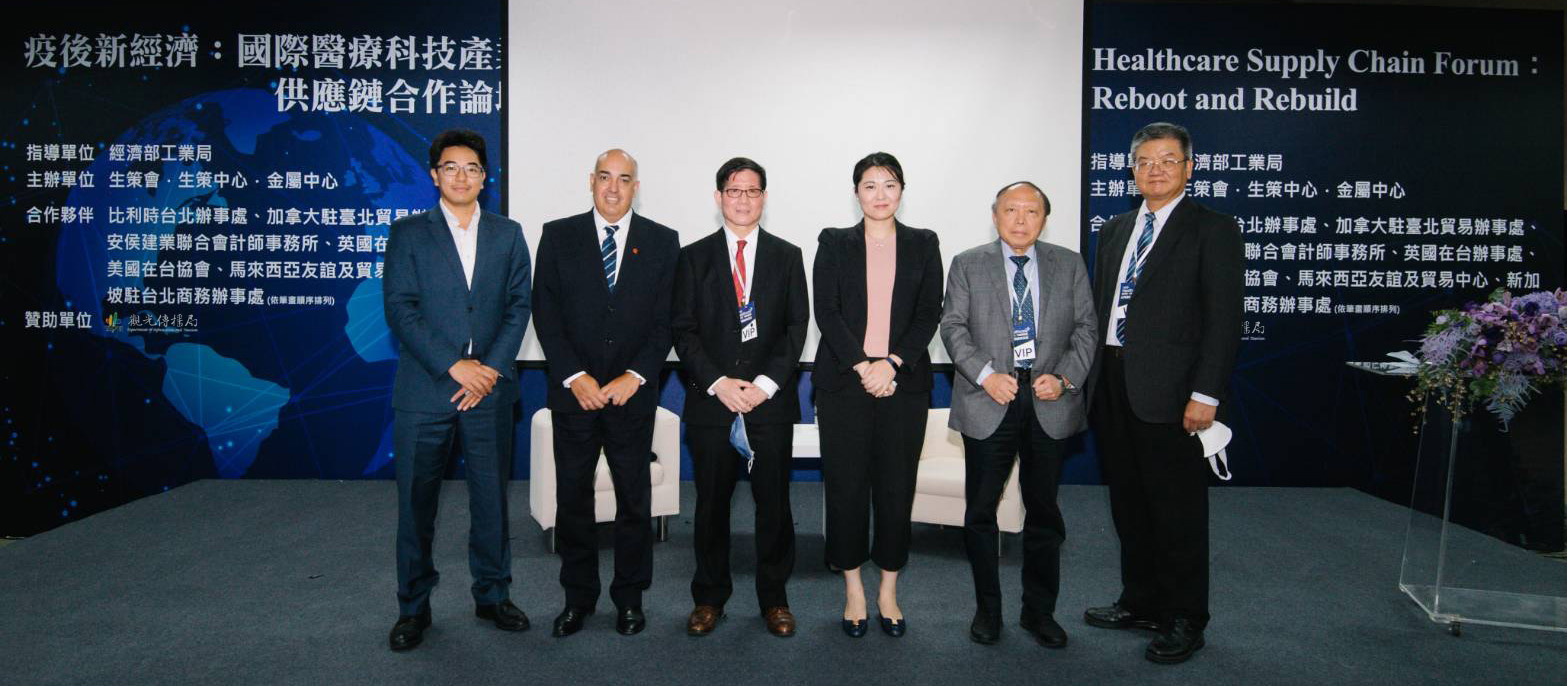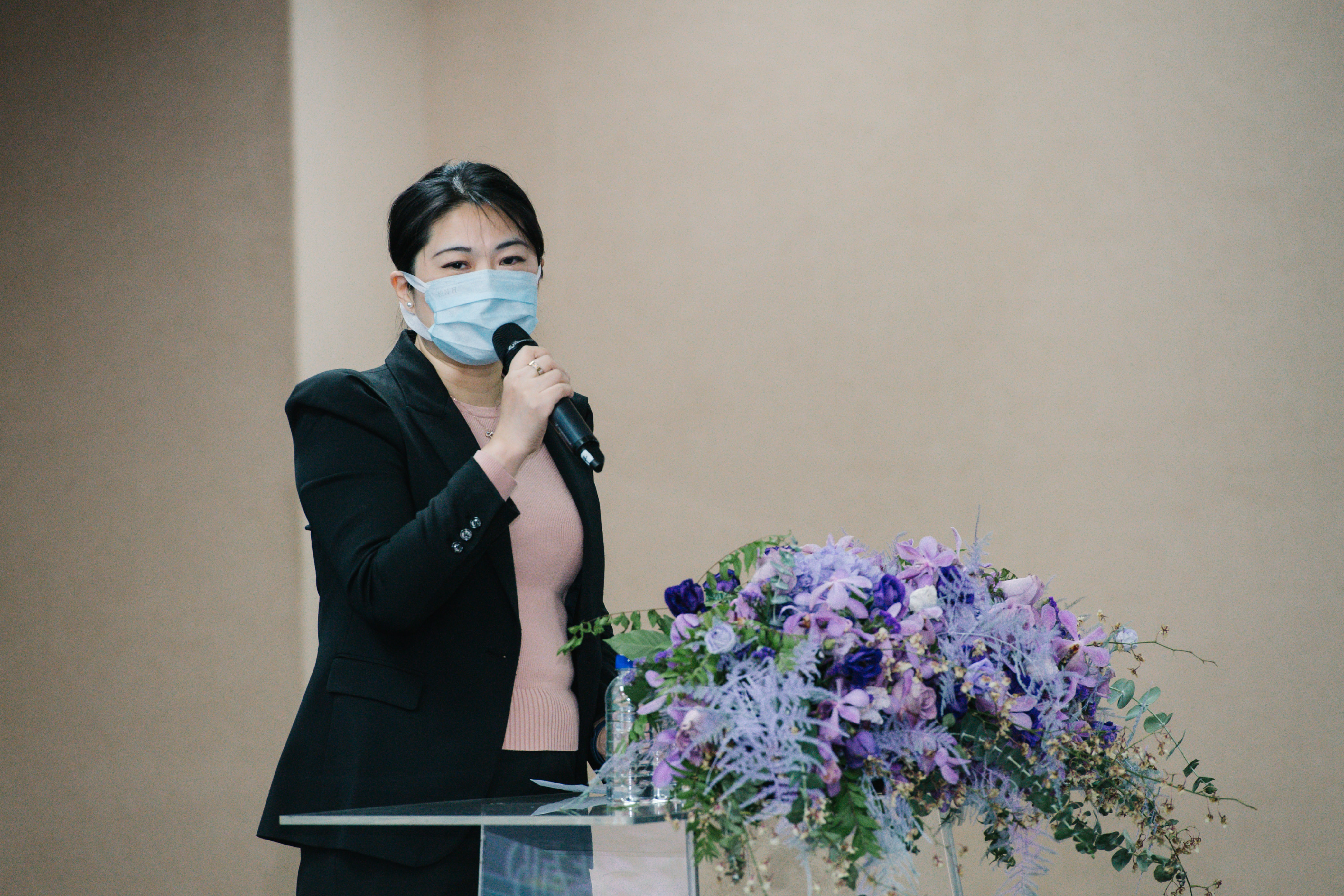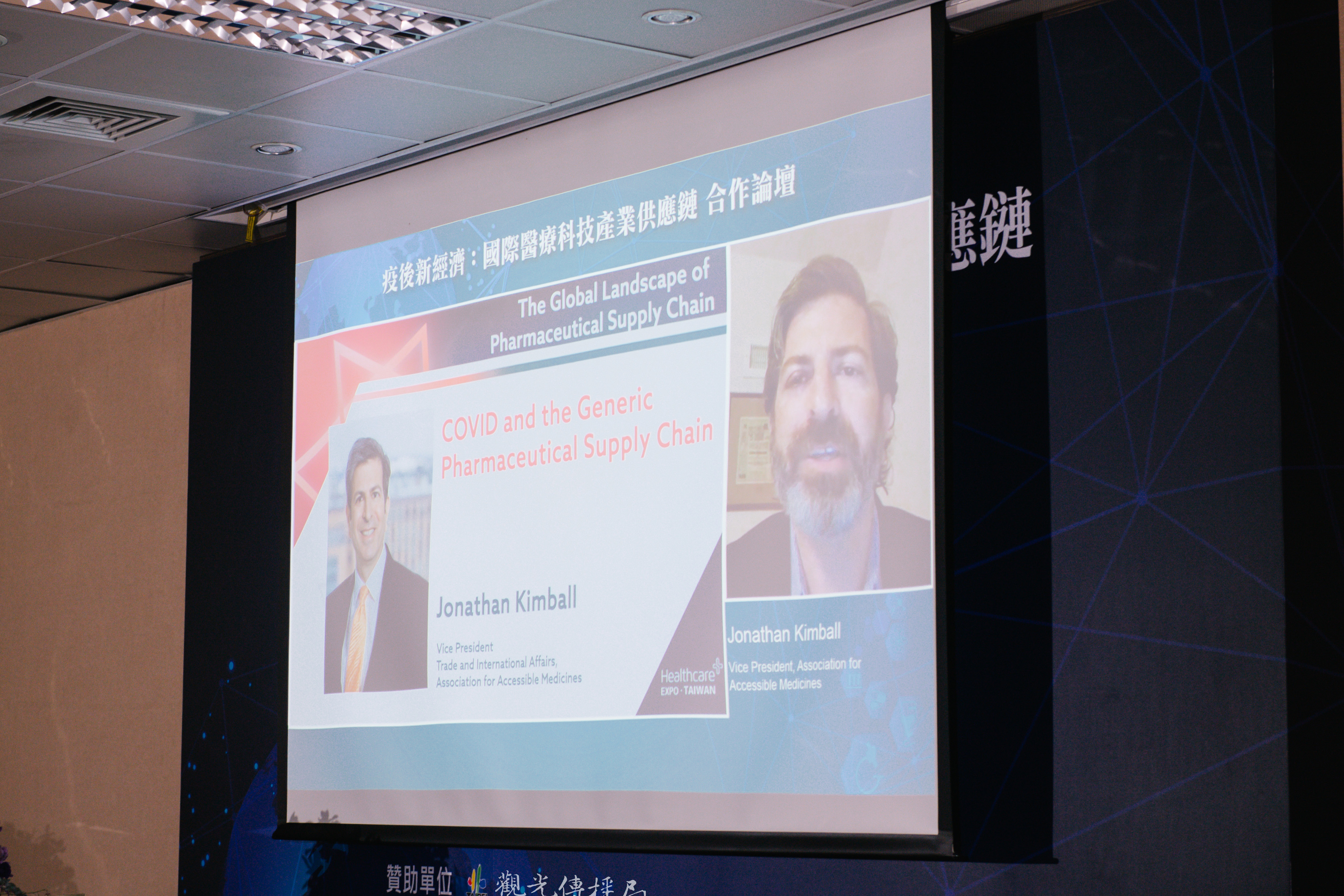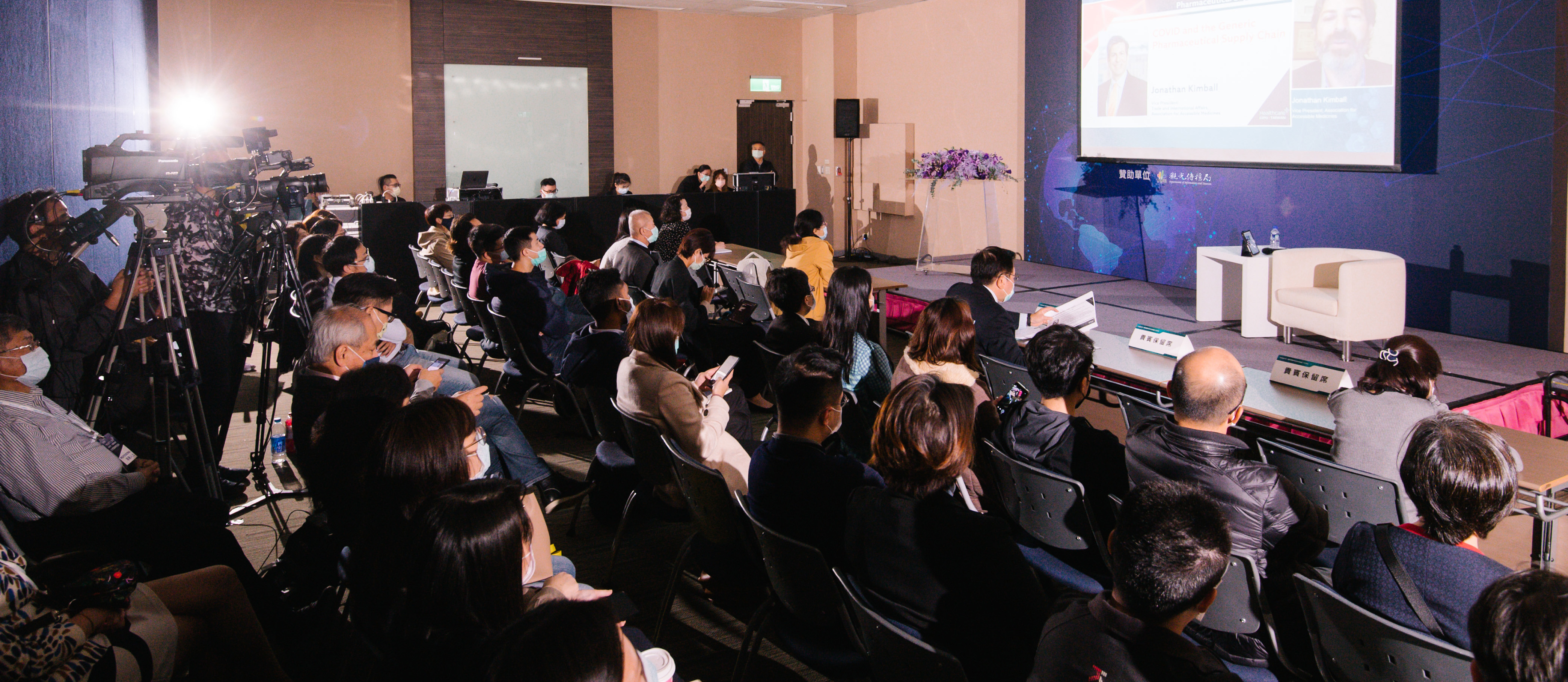
The Global Healthcare Supply Chain forum in Taipei prompts dialogues in strengthening supply-chain resilience and manufacturing capacity
2020-12-21



Held on 4 December in Taipei, the forum invited 16 industrial associations based in Europe, North America, Northeast and Southeast Asia to engage in conversations that sparked next steps onto shaping resilient and agile healthcare supply chains inter-regionally. The forum drew more than 300 audiences in participation physically.

Pei-Li Chen, Secretary General of the Development Bureau, Ministry of Economic Affairs Taiwan, and Chung-Liang Chien, CEO of the Institute for Biotechnology and Medicine Industry, unveiled the forum with brief opening remarks citing Taiwan’s response to Covid-19.
Session I: Digital Health and Emerging demands Generated by Covid-19
Ralph Ives, Executive VP of Global Strategy and Analysis in AdvaMed, indicated in his speech that the US has pushed ahead onshoring manufacturing to minimise dependency on foreign imports such as PPEs, ventilators and testing. Brian Lewis, President and CEO of MedTech Canada, expressed that the country will be going forward with supply chain diversification, at home manufacturing and supply diversity, virtual care capability as well as solutions for enhancing treatment capacity.
The forum moved on with the first panel discussion chaired by Ted Chang, CTO of Quanta Computer, and joined by Maryline Marquet, VP Operations of APACMed, Neil Ebenezer, Medical Technology Specialist of the Department for the International Trade, UK, Nipit Piravej, Board of Directors representing Thai Medical Informatics Association and Ching Choon-Siong, Executive Director of Association of Malaysian Medical Industries. Discussants shared digital health development and opportunities in respective markets, notably with Ms Marquet highlighting the government’s introduction to laws and regulations in response to disruptive health tech and its ambitions to become a home for corporate headquarters, as well as challenges raised by Dr Piravej due to a degree of health tech implementation varying country by country.

Session II: The global landscape of pharmaceutical supply chain
Another discussion on bio-pharmaceutical supply chain taking place concurrently was led by Oliver Yoa-Pu Hu, Chair Professor in Taipei Medical University. Jonathan Kimball, Vice President of Association for Accessible Medicines, went first with the US perspective of supply-chain impact as a result of Covid-19 and the election. Although there have been bills and acts of legislation protecting US-made medicines whilst repressing dependency on foreign imports, it is however a long-term goal to find new markets for exports, and new partners for supply chains. Jon Mowles, Technology Specialist of the Department of International Trade in the UK, followed with the progress of UK’s vaccine development, and professional bodies which supported and funded vaccine projects. Franck Toussaint, Executive Director & co-founder, Bio Supply Management Alliance Europe, brought the audience’s attention to digital transformation in the life sciences sector, using Amazon as the case. Increasingly pharmaceutical giants, software developers and even airports in Belgium harness the power of AI and data analysis to maximise values, transparency and efficiency of their businesses ranging from drug discovery and development, clinical trials to logistics, according to Mr Toussaint.
Jurie Hwang, Director International Affairs & Public Relations of KoreaBio shared in her speech that Korea’s huge success in testing kits also stimulated sales of biosimilars and essential drugs overseas.
Panel discussions concluded likely areas of collaboration between Taiwan and other economies. Harcharan Singh, Senior Vice President of Malaysian Bioeconomy Development Corporation, suggested that halal pharmaceuticals and health supplements, medical tourism could be further developed between Taiwan and Malaysia. Mr Kimball added that generic drugs and biosimilars would be the opportunity, while Mr Mowles and Mr Toussaint looked at gene therapy, new drug discovery, manufacturing and bio-pharmaceutical R&D.


As the coronavirus continues casting shadows worldwide, the focus has been made on supply-chain resilience, capacity, efficiency and regional alliance apart from vaccine supplies. Supply-chain transformation, led regardlessly by governments or enterprises, is no longer policy dialogues but action plans- the Buy American Act, and increasingly multilateral conversations that officials and industry leads have had within APAC regions. Taiwan, despite not facing the headwinds of Covid-19, is required to enhance lawmaking efficiency and invest in gaining a stronger foothold during the course of a global restructure of supply chains.
